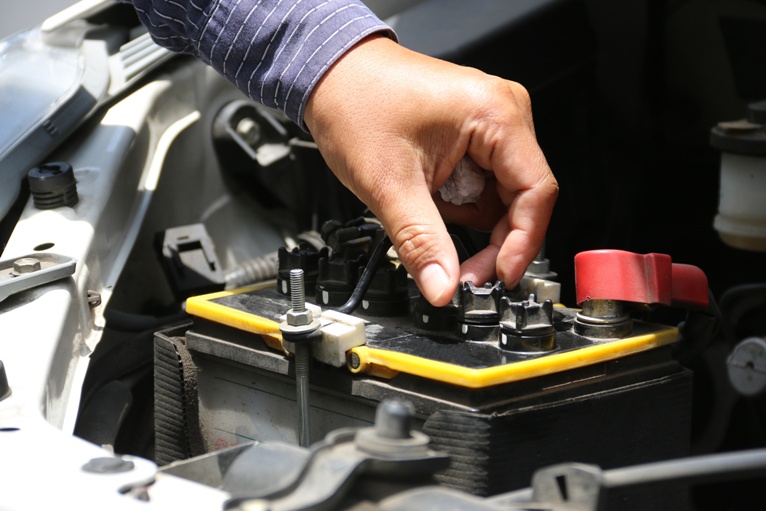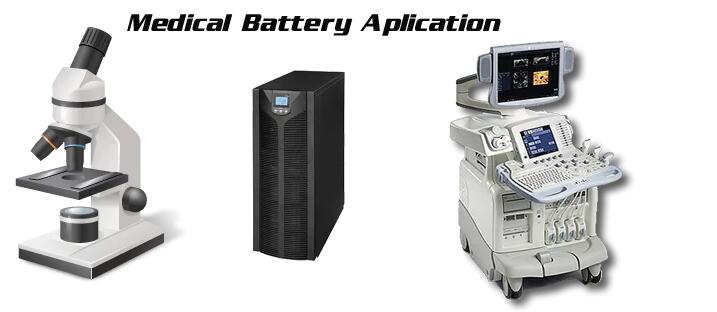Lithium-ion Battery: The Core Technology of Modern Energy Storage
Lithium-ion battery, as one of the core technologies in the field of modern energy storage, has been attracting attention since its birth with its excellent performance and wide application prospects. This article will deeply explore the basic principles, structural composition and unique advantages of lithium-ion batteries in energy storage, and reveal the secrets of this technological product to you.
1. Basic Principles
Li-ion battery is a secondary battery, that is, a rechargeable battery, and its working principle mainly depends on the movement of lithium ions between the positive electrode and the negative electrode. During the charging process, lithium ions are deintercalated from the positive electrode material and embedded into the negative electrode material through the electrolyte, making the negative electrode in a lithium-rich state; while during the discharging process, lithium ions are deintercalated from the negative electrode material and returned to the positive electrode through the electrolyte to complete a complete charging and discharging cycle. This process is commonly referred to as the “rocking chair battery” effect.

2. Structural Composition
The structure of Li-ion battery is relatively complex, but it mainly consists of the following main parts:
Positive electrode: The positive electrode is an important component of lithium-ion batteries, and usually uses lithium-containing oxides as active materials, such as lithium cobalt oxide (LixCoO2). The choice of positive electrode material directly affects the performance of the battery, including energy density, cycle life, etc.
Negative electrode: The negative electrode usually uses carbon materials such as graphite or petroleum coke as active materials. These materials have good lithium insertion properties and can receive lithium ions that migrate from the positive electrode during charging.
Electrolyte: The electrolyte is the channel for lithium ion migration in Li-ion batteries, usually a solution of organic solvents and lithium salts. The performance of the electrolyte directly affects the ionic conductivity and safety of the battery.
Diaphragm: The diaphragm is located between the positive and negative electrodes to prevent short circuits caused by direct contact between the two electrodes. The diaphragm also allows lithium ions to pass through to complete the charge and discharge process.
Battery case: The battery case is used to encapsulate all of the components inside the battery and protect the battery from the external environment. Common battery case materials include steel cases and aluminum cases.

3. Unique Advantages
The reason why lithium-ion batteries can occupy an important position in the field of energy storage is mainly due to the following unique advantages:
High energy density: Lithium-ion batteries have high energy density and can store a large amount of electrical energy in a small volume, which is particularly important for applications such as portable electronic devices and electric vehicles.
Long cycle life: Lithium-ion batteries have a long cycle life and can maintain a high level of performance after multiple charge and discharge cycles, reducing the cost of ownership.
No memory effect: Compared to early nickel-cadmium batteries and nickel-metal hydride batteries, lithium-ion batteries have the characteristics of no memory effect, that is, the battery capacity does not decrease due to partial discharge.
Low self-discharge rate: Lithium-ion batteries have a low self-discharge rate and can maintain a high power level when not used for a long time.
Environmentally friendly: Lithium-ion batteries do not contain harmful substances such as heavy metals and have a low impact on the environment. At the same time, with the advancement of recycling technology, the recycling rate of lithium-ion batteries is also increasing.
In summary, lithium-ion batteries have become one of the core technologies in the field of modern energy storage with excellent performance and wide application prospects. Through continuous technological innovation and process improvement, the performance of lithium-ion batteries will be further enhanced, providing more convenient and efficient energy solutions for people’s daily lives and industrial production.
-
 If you've ever experienced a dead battery while out on the road, you know how frustrating and inconvenient it can be. It can happen at the most unexpected time, leaving you stranded and unable to start your vehicle. That's where an emergency starter battery comes in handy. An emergency starter battery, also known as a jump starter, is a...Citeşte mai mult
If you've ever experienced a dead battery while out on the road, you know how frustrating and inconvenient it can be. It can happen at the most unexpected time, leaving you stranded and unable to start your vehicle. That's where an emergency starter battery comes in handy. An emergency starter battery, also known as a jump starter, is a...Citeşte mai mult -
 In recent years, there has been a growing interest in electric vehicles (EVs) as an alternative to conventional gasoline-powered cars. One of the key components that make EVs possible is the lithium battery. These batteries, with their high energy density and long-lasting power, have revolutionized the automotive industry and paved the way for a cleaner and more sustainable future. ...Citeşte mai mult
In recent years, there has been a growing interest in electric vehicles (EVs) as an alternative to conventional gasoline-powered cars. One of the key components that make EVs possible is the lithium battery. These batteries, with their high energy density and long-lasting power, have revolutionized the automotive industry and paved the way for a cleaner and more sustainable future. ...Citeşte mai mult -
 In today's rapidly evolving world, technological advancements have infiltrated almost every aspect of our lives, and the warehousing industry is no exception. The introduction of intelligent lithium battery-powered warehouse logistics trucks has revolutionized the way warehouses operate, offering numerous benefits in terms of efficiency, sustainability, and cost-effectiveness. One of the key advantages of intelligent lithium battery-powered warehouse logistics trucks...Citeşte mai mult
In today's rapidly evolving world, technological advancements have infiltrated almost every aspect of our lives, and the warehousing industry is no exception. The introduction of intelligent lithium battery-powered warehouse logistics trucks has revolutionized the way warehouses operate, offering numerous benefits in terms of efficiency, sustainability, and cost-effectiveness. One of the key advantages of intelligent lithium battery-powered warehouse logistics trucks...Citeşte mai mult -
 Introduction As the world's population continues to grow, the demand for food production is increasing rapidly. To meet this demand, the agriculture industry is undergoing a significant transformation with the adoption of advanced technologies. One of the key technological advancements in agriculture is the use of high-power lithium batteries in agricultural tools. These batteries not only provide increased power...Citeşte mai mult
Introduction As the world's population continues to grow, the demand for food production is increasing rapidly. To meet this demand, the agriculture industry is undergoing a significant transformation with the adoption of advanced technologies. One of the key technological advancements in agriculture is the use of high-power lithium batteries in agricultural tools. These batteries not only provide increased power...Citeşte mai mult -
 With the increasing demand for clean and sustainable energy, the adoption of lithium iron phosphate (LiFePO4) batteries has gained significant traction. These batteries offer numerous advantages over traditional lead-acid batteries, including enhanced safety, longer lifespan, and improved efficiency. To ensure a reliable power supply, it is crucial to have an efficient battery charger that can effectively charge and maintain these...Citeşte mai mult
With the increasing demand for clean and sustainable energy, the adoption of lithium iron phosphate (LiFePO4) batteries has gained significant traction. These batteries offer numerous advantages over traditional lead-acid batteries, including enhanced safety, longer lifespan, and improved efficiency. To ensure a reliable power supply, it is crucial to have an efficient battery charger that can effectively charge and maintain these...Citeşte mai mult -
 Power Your Adventures with a High-Capacity 12V LiFePO4 Battery - 100AhAre you tired of constantly worrying about running out of power during your outdoor adventures? Look no further than the high-capacity 12V LiFePO4 battery with 100Ah capacity. This battery is the perfect solution for powering your electronics and appliances during your outdoor adventures.One of the key benefits of the LiFePO4...Citeşte mai mult
Power Your Adventures with a High-Capacity 12V LiFePO4 Battery - 100AhAre you tired of constantly worrying about running out of power during your outdoor adventures? Look no further than the high-capacity 12V LiFePO4 battery with 100Ah capacity. This battery is the perfect solution for powering your electronics and appliances during your outdoor adventures.One of the key benefits of the LiFePO4...Citeşte mai mult -
 In the field of modern medicine, with the rapid advancement of science and technology, various advanced medical devices have emerged in an endless stream, providing strong support for doctors' diagnosis and treatment. Behind these devices, lithium batteries, as an important power source, play an indispensable role. Lithium batteries for medical equipment are not only required to have high energy density,...Citeşte mai mult
In the field of modern medicine, with the rapid advancement of science and technology, various advanced medical devices have emerged in an endless stream, providing strong support for doctors' diagnosis and treatment. Behind these devices, lithium batteries, as an important power source, play an indispensable role. Lithium batteries for medical equipment are not only required to have high energy density,...Citeşte mai mult

